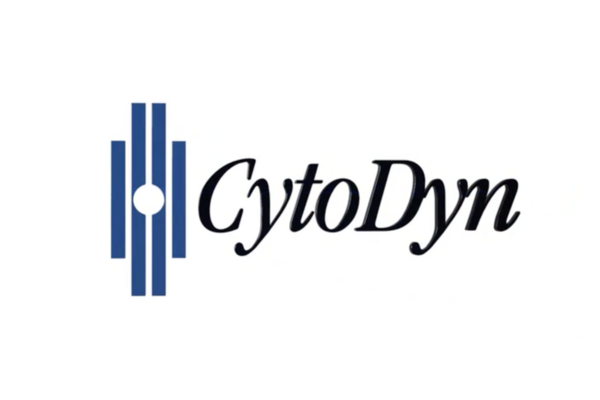The survival observations and retrospective data from the CytoDyn’s prior clinical trials suggest the potential paradigm shift in solid tumor oncology therapy. For more information on the promising observations and data from CytoDyn’s prior clinical trials, please select the drop-down link directly above.
To help understand this prospective new paradigm, the following is an explanation of the basic science and our working theory at this time.
For a cancer tumor to form in the body, it has to essentially blind the immune system to its development so it can grow unimpaired. It does this by hijacking CCR5, a protein receptor on the surface of certain immune cells. Through CCR5 signaling, the tumor commandeers host macrophages, a type of white blood cell which would otherwise attack the cancer cells, to help the tumor build a surrounding area or “microenvironment” to support its growth, including a blood supply that provides necessary nutrients. The growing tumor also uses CCR5 signaling to recruit immunosuppressive cells to the local environment that keep the microenvironment “cold” and the host immune system at bay.
As to the above processes, it appears leronlimab has the ability to disrupt the CCR5 signaling that both promotes the cancer tumor’s growth and protects its microenvironment from the host immune response. By disrupting CCR5 signaling, leronlimab allows the host immune system (CD8+ cells) to identify the cancer cells as a threat and attack them in what has now become a “hot” or inflamed microenvironment (expressing various inflammatory cytokines). In addition to its potential synergy with ICIs, leronlimab alone has demonstrated anti-metastatic activity by blocking CCR5-mediated signaling pathways that are known to facilitate tumor cell migration, invasion, and the establishment of metastatic niches.
To counter the pressure of an attack from the host immune system, the cancer, at least as evidenced on the CTCs, has a secondary line of defense: expressing a protein called PD-L1 and hijacking its relationship to its receptor, PD-1. Ordinarily, PD-1 acts as the immune system’s “off switch”, binding with PD-L1 on functioning immune cells and preventing them from being so strong they kill healthy cells in the body. Cancer cells capitalize on this system by expressing PD-L1 and binding to the “off switch” on the invading host immune cells, in turn slowing an immune response, thereby protecting the tumor.
As observed in patients who were fortunate enough to receive a PD-L1 antibody called an immune checkpoint inhibitor (“ICI”) in our prior studies, this “secondary defense” of the tumor can be thwarted. The antibody prevents the PD-L1 protein from binding to the “off switch” (PD-1), keeping the immune system “on” and allowing the host immune attack on the cancer to continue. Typically, patients who have tumors with higher levels of PD-L1 expression derive the most benefit from treatment with an ICI, given there are more opportunities for the antibody to block connections to the “off” switch and allow the immune system to fight the cancer cells.
As to this process, preliminary data indicates that leronlimab has the ability to induce higher levels of PD-L1 expression in solid tumor cancer cells. This opens potential new treatment pathways for patients with low PD-L1 levels that would have otherwise been unable to derive benefit from an ICI.
The foregoing sequence is a novel working theory, however, our data first presented at ESMO Breast Cancer Annual Congress (“ESMO”) suggests that this is what happened in the five patients who are alive today.
The key findings from our presentation at ESMO in May 2025 included the following (ESMO Breast Cancer Annual Congress, May 14-17, 2025 Poster #369P):
- PD-L1 Upregulation:16/21 (76%) of patients showed a significant increase in PD-L1 expression on CTCs within 30-90 days after starting leronlimab, regardless of dose. This suggests that the tumor microenvironment was turned from “cold” to “hot” (from protected against host immune invasion to under host immune attack). Even more remarkably, this shift from “cold” to “hot” occurred in 15/17 (88%) patients who received weekly leronlimab doses of 525 mg or higher. Turning “cold” tumors “hot” means that far more patients with TNBC (and potentially other solid tumors) may become eligible for a class of drugs known as anti-PD-1/anti-PD-L1 treatments and collectively referred to as Immune Checkpoint Inhibitors (ICIs).
- Long Term Survival:The clinical significance of the increase in PD-L1 observed on the CTCs was driven home by the confirmation that 5/5 (100%) of patients who demonstrated a significant increase in PD-L1 expression while receiving leronlimab and received an ICI are alive today, 4+ years later. More remarkably, three of these individuals (60%) are currently identified as having no ongoing evidence of disease. To underscore the clinical significance of these results, unfortunately none of the 23 patients who didn’t induce significant PD-L1 expression or didn’t receive an ICI with leronlimab are alive today.


